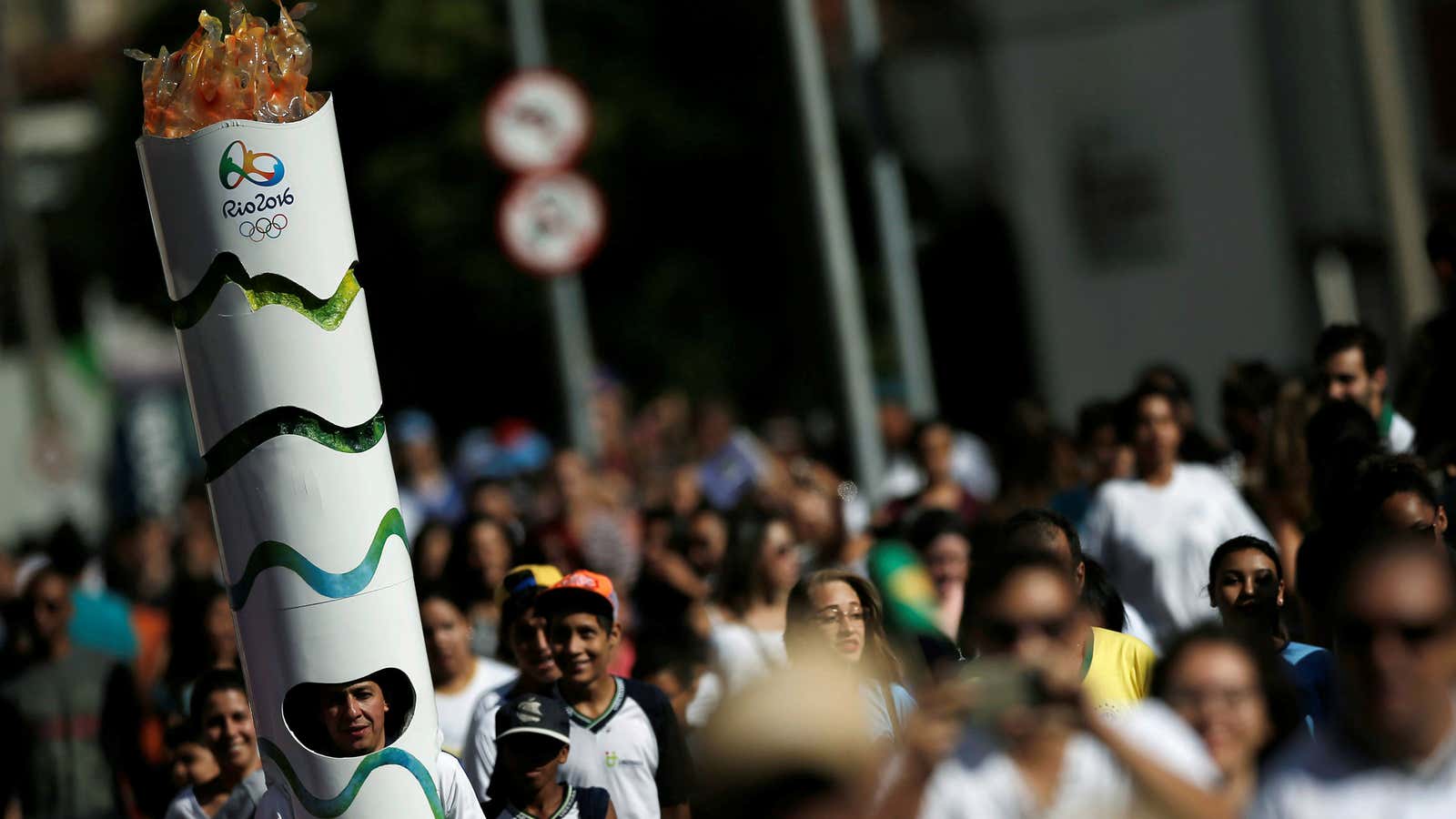The Zika virus has cast a long shadow over the upcoming 2016 Summer Olympics in Rio de Janeiro.
Amir Attaran of the University of Ottawa, an expert on population health, is calling for the games to be canceled or moved to avoid a “full-blown global health disaster.” In an article for the Harvard Public Review, Attaran argues that this strain of the Zika virus is not only “vastly more dangerous” than previous variations, but that Zika has spread in Rio more extensively than previously thought.
The International Olympic Committee (IOC)—which has been diligently following the World Health Organization’s (WHO) advice—has dismissed Attaran’s views. The IOC’s medical director Richard Budgett insisted the games would go ahead, but that they would be monitoring the situation closely.
So what’s the real risk for tourists? A recent study suggests that it is miniscule.
Apart from Zika, Brazil has also dealt with many dengue epidemics in recent years. Researchers at the University of São Paulo looked at how many of the million or so tourists that came for the 2014 soccer World Cup caught dengue, and then created computer simulations for the worst-case scenario at the upcoming Olympics. They concluded that only around 200 out of the 500,000 expected tourists would catch dengue. Their preliminary studies show that the risk of contracting Zika is even smaller, with perhaps only one in 500,000 getting infected.
Why so few? First, the games will be held during Brazil’s winter, when mosquitoes are least active. Second, the number of locals will always vastly outnumber tourists, attracting more mosquitoes. Third, researchers don’t see any reason why the worst-case scenario for the spread of the virus this year should be any worse than past years around the time.
For Attaran, however, even one infection is too much. He argues this one infected person could still accelerate the virus’s global spread and make the pandemic worse. Though acknowledging there is some debate among scientists on the impact tourists will have on the epidemic, Attaran insists the worry is when, not if, the Olympic games will speed the spread the Zika virus.
Right now it is Attaran against the consensus of the world’s biggest health organization. The IOC has good reasons to agree with the WHO, which failed in its attempts to control the Ebola outbreak, but been doing a much better job dealing with the Zika epidemic.
